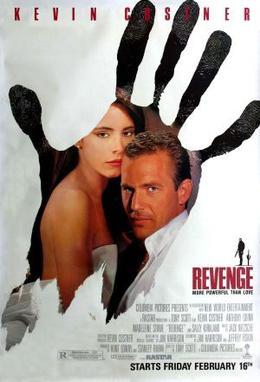THE GOLDEN GIRLS: THE COMPETITION
Written by: Barry Fanaro and Mort Nathan
Directed by: Jim Drake
Airdate: November 2, 1985
One never forgets their first love, or whatever first love the script presents you. The Competition introduces a character's characteristic that will be seen in the future. It will also, just seven episodes in, make any kind of continuity almost damn near impossible to maintain.
Sophia Petrillo (Estelle Getty) is delighted due to recent news. Coming to Miami is Augustine Bagatelli (Ralph Manza), her ex-fiancée whom the war separated. At first Sophia's daughter Dorothy Zbornak (Bea Arthur) is happy to see her mother reunited with a lost love. Her joy turns sour when Sophia tells her that she plans to go back to Sicily on a nostalgic return to the San Genero Festival where Sophia and Augustine met 65 years earlier. Dorothy refuses to let her go, let alone give her $1200 for the airfare.
This is where Rose Nylund (Betty White) can help. Rose and Blanche Devereaux (Rue McClanahan) enter a bowling tournament every year. While Blanche enjoys the social aspects of the tournament, Rose is an almost unhinged competitor, fierce and almost dangerous to play against. Determined to win, she dumps Blanche to get Dorothy to be her partner. Rose's competitive streak leads her to secretly dump Dorothy when she learns a better bowler broke up with her twin sister. However, when the sisters reconcile, Dorothy dumps Rose in disgust and joins Blanche. Determined to show that she is not a feeble old woman, Sophia joins Rose.
The bet is on between Sophia and Dorothy: if Sophia wins, she gets the money, if she loses, Dorothy gets a pair of antique earrings. Who will win The Competition?
We learn new information about Sophia, Dorothy and Rose from The Competition. We learn that Sophia has been a widow for twenty-two years. That puts her still-unnamed husband's death in 1963. Dorothy says she is 55 years old, and that Rose has six brothers. Dorothy therefore would have been born in 1930 (Bea Arthur was born in 1922). That gives us a surprising, almost scandalous situation. In The Engagement Dorothy stated that Stan was 65 years old. That gives them a ten-year age gap. As Stan would have been 25 years old when they got married, that would mean Stan knocked up Dorothy when she was 15 years old.
Sophia mentions that "The War" separated her and Augustine. World War I was fought between 1914 and 1918; if we go by Sophia's stated age of 80 from Rose the Prude, she would have been between 9 and 13 at the time of the First World War. It looks like the Petrillo women get engaged or married very early. It is also hard to think that Sophia meant World War II. She would have already been living in America at the time, especially since Dorothy and her younger brother Phil would have been born in New York. Add to that how Sophia and Augustine met at the San Genero Festival 65 years ago. That would have been in 1920, two years after World War I and nineteen years before World War II.
Sophia would have been 15 years old when she and Augustine first met if we use 1905 as her birth year. While that aspect of her story makes sense, nothing else in Sophia's reminiscences does.
A mere seven episodes into The Golden Girls' first season and now everything is an absolute jumble. Things are going to get hopelessly muddled as the years go by.
There are two sections cut or edited down from rebroadcasts. The first is extended dialogue between Dorothy and Blanche about sneaking in extra bowling practice to beat Sophia and Rose. The second is dialogue at the bowling tournament where they discuss a Viking funeral and how three of them are wearing the same blouse. Finally, this is the first episode to not open with music written for the show. Instead, we hear Sophia humming Musetta's Waltz from La Boheme. Given that Sophia is proudly Italian/Sicilian, she would enjoy opera.
The Competition balances sweetness and comic malevolence well. It is hard not to root for Sophia and Augustine, this adorable old couple reuniting after decades apart. The interaction between Getty and Manza is charming and sweet, selling the idea that these were two old loves reuniting, with fond memories but no desire to reestablish their long-lost romance.
Each actress gave excellent performances. There was no one that towered over the other here. White was fun and outrageous as the hypercompetitive Rose. Getty was delightful as the happy Sophia and equally strong fighting for what she wanted. McClanahan's Blanche was a delight when she has to face her fear at having the tournament rest on her shoulders or anger remembering how she was dumped. Arthur was excellent in her sarcasm but also moving when she does the right thing by her mother.
What does put The Competition above other episodes so far is how we get a more well-rounded character in Rose. So far, she has been the sweet, naive farmer's daughter. Now we get to see a darker side: the aggressive sports competitor who will stop at nothing to win. She'll betray friends, push others aside and openly mock them for losing.
I like that The Golden Girls opted to give Rose this flaw. More credit in that it is used for comic effect. At heart, Rose is a generally nice, caring person. However, as she says, she needs to win. The Competition ends quite well. Dorothy and Blanche, understandably, have frozen Rose out due to her outrageous and unsportsmanlike behavior at having won. Rose accepts that she is wrong, apologizes and makes what seems a noble gesture of including all their names on the championship trophy.
While we don't get to see it, Rose still made her name three times larger than the others. As she put it, it's because she is the one that actually won. This is a nice way to punctuate The Competition, an episode that was funny and touching.
I wonder, though, if Coco would have been Team Dorothy or Team Sophia.
7/10
Next Episode: The Break-In


















_poster.jpg)










